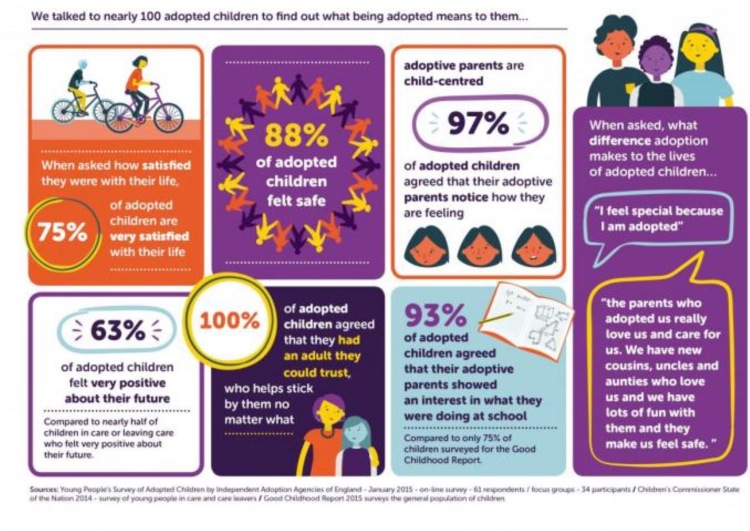This is a guest blog from an adopted adult who has contacted The Open Nest following recent government adoption reform announcements. They have requested a safe forum to share their thoughts. Here they are:
Easter conjures up many images for me, small people delightedly hunting for chocolate eggs, spring lambs, daffodils and crocuses and for particular faiths it’s a time of resurrection, the end and a new beginning.
Our government, true to form, did their own bit of resurrecting over the Easter weekend, adoption reform, again.
Nicky Morgan announced sweeping changes to the way that adoption is prioritised, practiced and monitored (again) but immediately prior to this, something shiny caught my eye on Twitter- a cartoon infographic, published by CoramBaaf purporting to be about adopted children’s view of being adopted.
How wonderful, I thought at first glance, the big movers and shakers are finally taking into account the views of those directly and permanently impacted by adoption. And then I looked closer…
‘We talked to nearly 100 adopted children to find out what being adopted means to them’ – did they?
No, they asked 95 adopted children via focus groups (34 participants) and online survey (61 participants) some fairly closed questions about being adopted. As these are children, I think it’s safe to assume that none of this was carried out without the direct consent and participation of the parents too (I have contacted CoramBaaf a couple of times this last week to ask about their ethical procedures for this survey and the remit of the participants, what questions were asked, the age of the children etc- perhaps not surprisingly I have had no response)
So that got me to thinking, what child, adopted or otherwise could really feel 100% comfortable answering such questions as ‘how satisfied are you with your life?’ in front of their parents, truthfully? maybe not many, so I’m very sceptical about the process of the survey and that’s before we get to the actual figures-
75% of adopted children are ‘very satisfied’ with their life (a quarter then, are not?)
63% of adopted children feel ‘very positive’ about the future (37% don’t?)
100% of adopted children agreed that they had an adult they could trust (an adult, not necessarily a parent?)
you see my point? I don’t know what these figures show us, apart from a cynical attempt by the government to ‘butter up’ prospective adopters before the big announcement the following day and I think that’s called propaganda.
We all know that adoption is hard, so hard. For everyone involved- so why are the government pretending otherwise? To paint a picture of hearts and hugs and cartoon faces smiling is to be dishonest about the reality of living with adoption.
Accompanying the infographic was a cartoon (again with the cartoons? why does everything have to be infantilised?) running at just over 4 minutes long co-created by The Adoptables- the CoramBaaf young adoptee representatives detailing what adoption can be like for them- this, at least sounded like the voices of the young people themselves, not shying away from some of the challenges, but providing a snapshot of their experience of being adopted.
To the ‘vision for adoption’ itself- the sixth and final one of these from the government is that the
‘voice of adopters and their children is at the heart of national and local policy decision making and delivery of services. The views of adopters and adopted children are demonstrably used in the shaping and co-production of services and help to inform national policy developments’
how this part of the vision will be delivered is described further on in the document…
the government will ‘enhance the voice of adopters so that services give adopters the power of choice and that the views of adopters shape decisions about the future design of adoption services’
spot the difference? in the space of a couple of paragraphs the voices of the adopted children has been airbrushed out.
I can’t fathom why this is- surely the people with the most insight into adoption are the people who are adopted? When the State of the Nation report into young peoples experiences of care was produced in 2015- 2,936 surveys were collected- admittedly just a fraction of the number of people who have experienced care but significantly more representative than 95. Why can’t we ask adopted people about their experiences? Why can’t they sit on the boards? The ‘expert’ panels? What are we afraid of hearing?
AW

You must be logged in to post a comment.